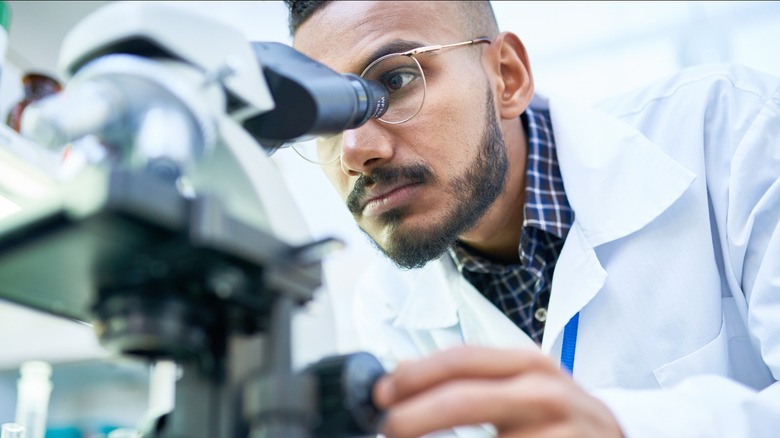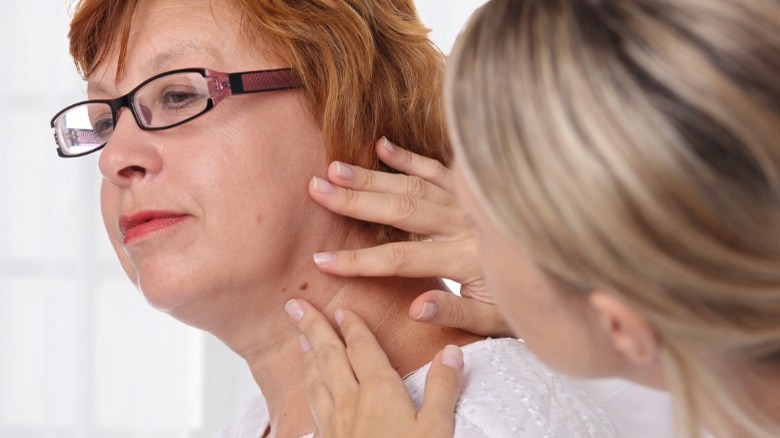Does Having Precancerous Cells Mean You'll Get Cancer?
It was estimated that there would be 1.9 million new cancer cases diagnosed and 609,000 deaths in 2022, according to the American Cancer Society (ACS). Even though many would consider those numbers high, there has been considerable progress in the battle against cancer in recent decades, especially in the decline of the mortality rate. Between 1991 and 2019, cancer deaths decreased from 215 per 100,000 individuals to 146 per 100,000 — a 32% drop — thanks to advances in prevention and treatment. While anyone can develop cancer, the risk increases significantly as you grow older. The majority of those diagnosed are 65 years and older.
While official medical records have only been kept since the early 19th century in Europe and then the mid-19th century in the United States, a mini review in the International Journal of Cancer points out that cancer has been afflicting humanity since prehistoric times. Written and physical records of cancerous growths in humans date back to at least as far as 1500 B.C. During the first millennium, Roman physicians were among the first to describe the evolution of various types of tumors — including the invasive nature of cancerous tumors and how they spread — and to investigate ways in which these tumors could be treated.
If you receive a cancer diagnosis, it means that you have abnormal or damaged cells that are multiplying uncontrollably with the potential to spread elsewhere in the body, according to the National Cancer Institute. But if your doctor diagnoses you with precancerous cells, you may wonder if a cancer diagnosis is definitely in your future. Fortunately, precancerous cells are not a definitive omen that you'll develop cancer.
Precancerous cells explained
While the discovery of precancerous cells sounds scary, if your doctor uncovers precancerous cells, this doesn't mean you have cancer or that you will develop cancer. Precancerous cells have the appearance of cancer, but don't have the characteristics of cancer cells that allow them to push through the membranes and invade other organs, Dr. Stephanie Angela King, surgical oncologist, told Fox Chase Cancer Center. In fact, in many cases, precancerous cells don't ever turn into cancer. Still, precancerous cells do have the potential to develop into invasive cancer. Moreover, precancerous cells can be an indicator that you are more predisposed to developing cancer, explains Dr. King, and so it's essential that you and your healthcare provider monitor the situation if precancerous cells are present.
Also called premalignant cancer or dysplasias, precancerous cells can appear in many places. For example, it is not uncommon for precancerous cells to develop on the vocal cords, skin, or the prostate. Precancerous cells can also appear in the colon, often in the form of a polyp that a doctor can typically remove easily. Precancerous cells can also form in the cervix. Known as cervical dysplasia, this condition affects more than 250,000 Americans annually, per Johns Hopkins Medicine.
Precancerous conditions: causes, treatment, and prevention
There are a few known causes of precancerous conditions. One of the most common is exposure to certain environmental factors, such as tobacco smoke or ultraviolet radiation from the sun. This is why it's so important to wear sunscreen and limit your time in the sun, and why it's best to avoid smoking altogether, according to the experts at City of Hope. Another cause of precancerous conditions is inflammation. For instance, if you have inflammatory bowel issues such as Crohn's disease, you may be more prone to develop precancerous cells that could lead to colon cancer.
There are some different treatments for precancerous conditions, depending on the type and severity of the condition. One common treatment is surgery, which may involve removing the precancerous cells or tissue. Other options include medications and certain medical therapies, depending on the location and type of precancerous cells.
Of course, the best way to prevent precancerous conditions is to take care of yourself. The experts at UC Davis Health explain that by eating a healthy diet rich in fruits and vegetables, curtailing your alcohol intake, and exercising regularly, you can help boost your body's natural defenses against abnormal cell growth. Additionally, it's important to get regular checkups and to be aware of any changes in your body. By being proactive about your health, you can reduce your risk of developing precancerous conditions and catch them early if they do develop.



